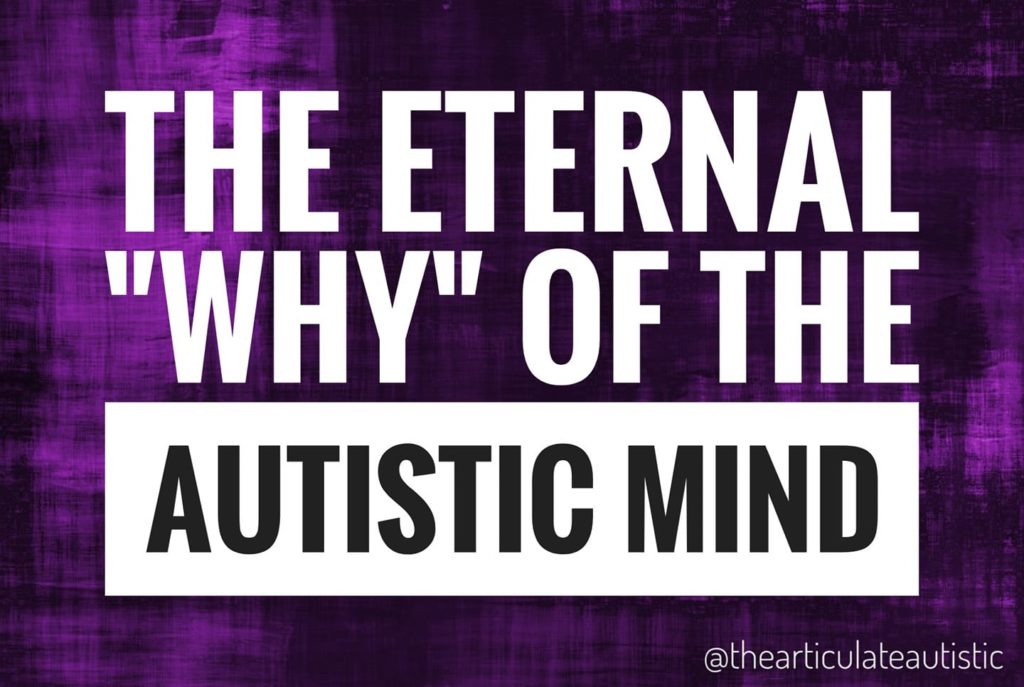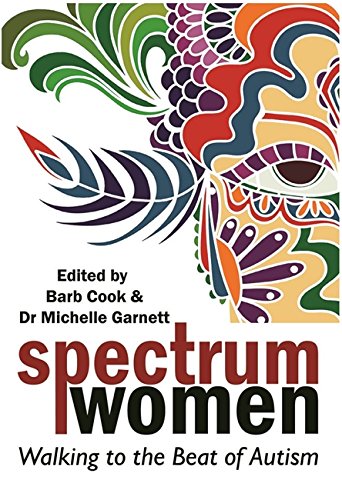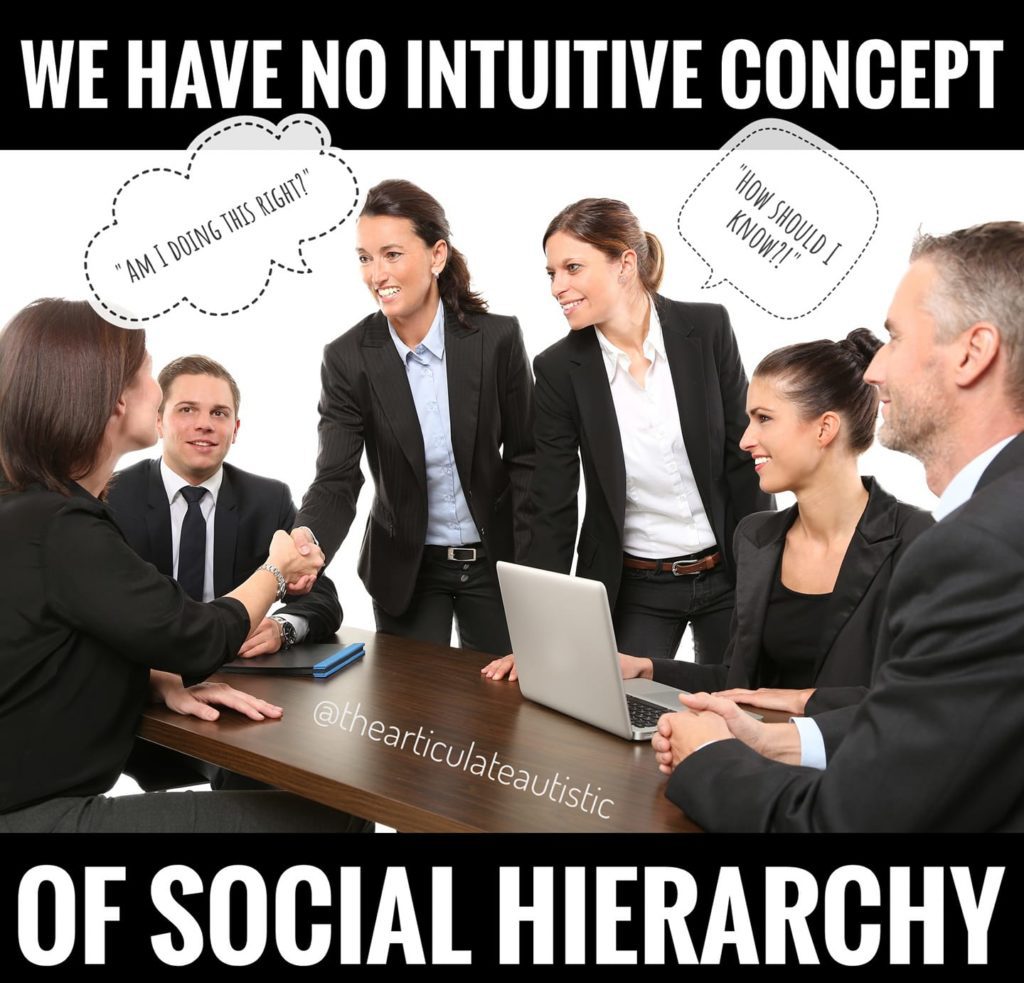Why Does My Autistic Loved One Ask “Why” All the Time?

In the past couple of posts, I’ve explained how utterly imperative it is to be very specific when requesting something of a person on the spectrum, and why, when autistic people explain things to neurotypical people, it can come across as rude and condescending (even though it’s not meant to be).
In today’s post, I want to add to this dialogue by discussing the word, “Why?”
If you know someone on the spectrum, you’ve probably heard this word more times than you can count.
WHY is probably the most misunderstood word between autistics and neurotypicals. It’s the one that can cause the most friction and the most problems.
To an autistic person, asking “why” is a request for the reasoning behind something we’ve been asked to do or a rule we’ve been asked to follow.
– Jaime A. Heidel
When someone explains to me why something must be done or said a certain way, it feels like someone is taking a blanket off my face that I didn’t know was there. I can breathe! I can understand! I can make connections between the request and the reason! Life is beautiful in that moment!
Specific and detailed responses to “why” make me feel calm and secure in my environment.
Without the answer to this all-important question, I feel like I’m only getting half the picture while floating stomach-twistingly in the air on a kite string flown by an uncoordinated four-year-old.
I can’t hang on, and, at any moment, I feel like I’m going to slip away into the wind, never to be seen again.
(Article continues below.)
The best way to improve communication with your autistic loved one is to understand how your autistic loved one’s mind works! Intentions, motivations, and personal expressions (facial expressions or lack thereof, body language, etc.), are often quite different in autistic people than they are in neurotypical people.
Experience a better understanding of your autistic loved one by reading books about life from an autistic perspective as well as stories that feature autistic characters. You’ll have so many “Ah ha!” moments and start seeing your autistic loved one in a different light (and you’ll have a better understanding of their behaviors, which you may have been misinterpreting up until now).
Books I recommend for a better understanding of your autistic loved one:
Now, by contrast, when many neurotypical people are asked “why” by anyone over the age of about 10, they feel as though they’ve been slapped in the face!
That’s right! When an NT asks another NT the question, “why”, it is seen as an expression of doubt, mistrust, insubordination, and arguing.
However, this does depend on how the question is asked and how often it is asked after an instruction is given.
“Why” is not seen as a request for more information in many cases with NT people, especially when it comes to relationships that are of the “mentor” and “student” variety. For example, boss and employee, parent and child, elder and younger person. “Why” is seen as a sign of disrespect.
When you’re on more of an “even playing field” in the social hierarchy, say, co-worker and co-worker, child and child, or younger person and younger person, this question is more acceptable and tolerated.
If you’re an NT, I’m really going to knock you on your ass with this next revelation: Autistic people do not have an inherent understanding of social hierarchy. To us, a CEO is no different than a janitor, a child no different than a parent, a billionaire no different than a homeless person.
Click on the photo below to learn more about how autistic people view social hierarchy.
Plus, add this to the fact that we NEED to know why we are doing things in order to learn and make sense of the world and what’s expected of us, and you literally have one word that acts like a ticking time bomb.
So…neurotypical people, your answers to the question of “why” is our oxygen, our water, our food. We are NOT questioning you as a person or trying to be rude, we are simply (and sometimes desperately) trying to understand. Also, we do not recognize social hierarchy until it is explained to us, and even then we don’t really “get it” deep down (because we aren’t wired that way), but we will learn to follow it to a point to avoid uncomfortable situations.
Follow me on Instagram.
Want downloadable, PDF-format copies of these blog posts to print and use with your loved ones or small class? Click here to become a Patreon supporter!









2 Responses
[…] my last post, I talked about why it is so incredibly important to answer the question, “Why?” when an autistic person asks it. While I was explaining, one of the things I revealed is that […]
[…] been talking about being specific with autistic people, understanding that “why” is just a question to us, nothing more, and our inability to conceptualize social […]